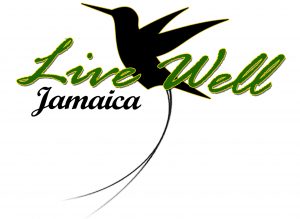The dream of cleaner streets is that much closer to reality for the communities of Whitehouse and Bluefields on Jamaica’s picturesque South Coast. This, through a United Nations grant that will allow the Sandals Foundation to move ahead with a new Solid Waste Reduction Project to clean up the communities and educate residents on how to properly manage their waste.
The project, which was launched on World Ocean’s Day (June 8, 2018) at Sandals South Coast, will also be supported by the Recycling Partners of Jamaica, National Environment & Planning Agency (NEPA) and the Ministry of Economic Growth and Job Creation. It is to consist of three main components: public awareness and separation, waste separation and management, and monitoring.
The public awareness campaign will serve to inform and educate community members on how to separate and manage their waste and the benefits of doing this while helping them to understand what the project aims to do and to gain their support and participation.

Environmental Officer at the Sandals Foundation, Jonathan Hernould said engaging the communities is the first step to ensuring the success and sustainability of the project in the communities.
“The communities must first be made aware and educated on proper waste management practices through the correct separation and disposal of their waste if we are to sustain this initiative. At least one activity will be carried out per week in each community by the Sandals Foundation and the Peace Corps, engaging residents at Community Development Committee (CDC) meetings, town walks, school activities, church services and other stakeholder meetings to ensure that we connect with the residents,” Hernould said.
The Sandals Foundation will provide 200 properly labelled bins to the communities and in schools. These waste bins will be placed in groups of threes, in order to allow for the separation of waste into plastics for recycling, compostable material, and garbage. Each category of waste will be collected by a different entity once per week in order to ensure regular collection in each community.
“Large amounts of garbage generated by the two communities end up either on the coast or in the sea,” Hernould said. “On September 17th, 2016, 2620lbs of garbage was collected on one 200m stretch of beach in the town of Whitehouse. Pollution in the area has significantly affected the Whitehouse and Bluefields Bay Special Fishery Conservation Areas (SFCA), which not only affects marine life but the livelihoods of local fishermen who depend on the SFCAs to provide more and larger fish in the surrounding areas.” Hernould said regular monitoring will also be done through a number of social surveys and land and underwater cleanups to gauge the public’s knowledge and measure the progress of the project in the area.

Hernould added that the success of the project will see major improvements to the communities that will benefit both the surrounding environment and the populations of both the Whitehouse and Bluefields communities.
“There are several things that we are looking to see happen through the program including less garbage ending up in the sea and less visible garbage in the communities. Through our public awareness, education and the provision of waste separation bins, the communities will have the tools to properly separate and dispose of their garbage. There is also the possibility of income generation opportunities through composting, less mosquito-borne diseases, better managed protected areas and an overall social change that will see residents playing a more active role in the protection of their environment,” Hernould said.
The Sandals Foundation, which is the non-profit arm of Sandals and Beaches Resorts, and their partners hope that, by improving solid waste management in these two south coast communities, they can create a framework to assist solid waste management across the region.










